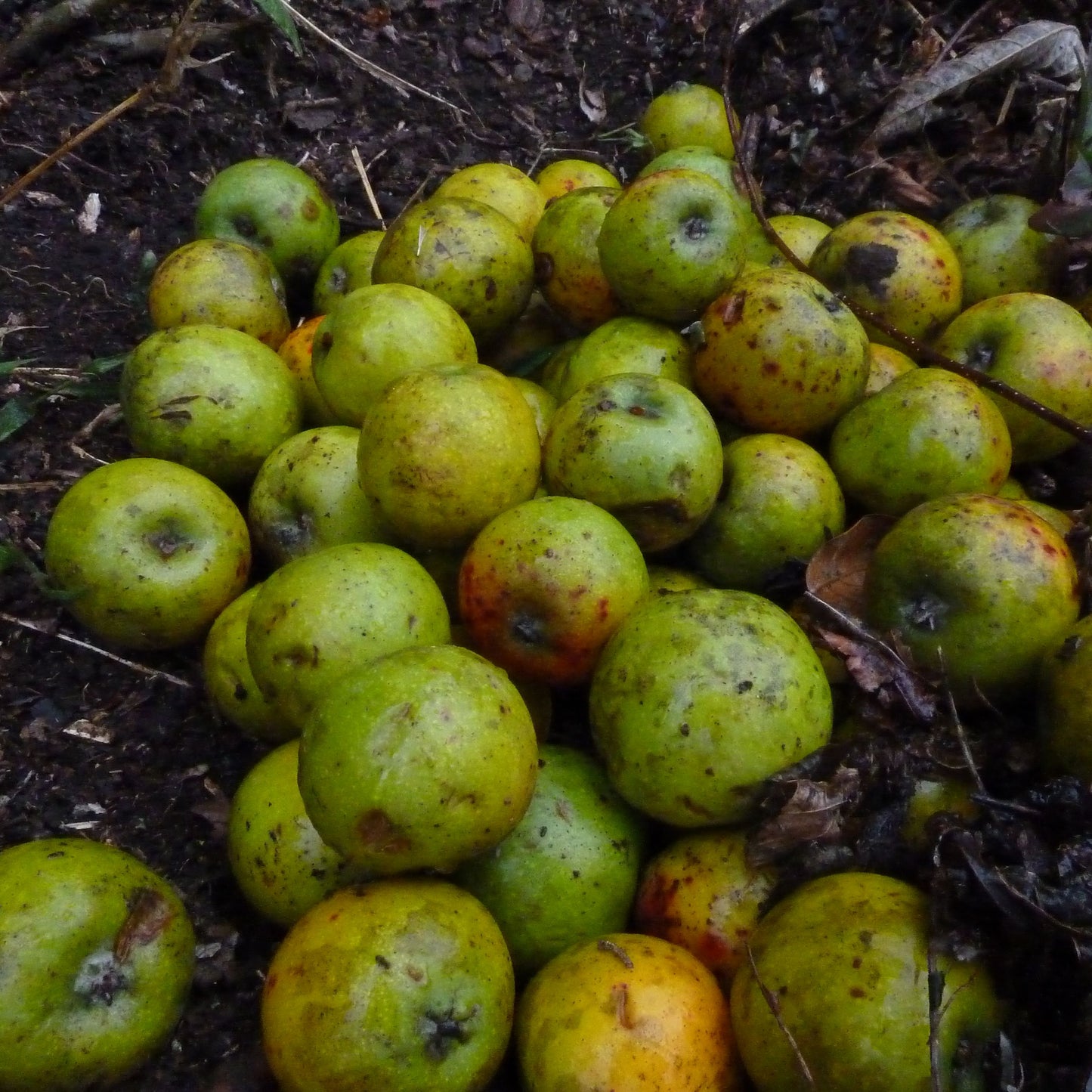Love it? Add to your wishlist
Your favorites, all in one place. Shop quickly and easily with the wishlist feature!
[message]
[title]
[message]



Veliyath Gardens
Couldn't load pickup availability
Botanical Name: Docynia indica
Common Names: Assam Apple, Duo-Yi, Indian Crabapple
Native Regions: India (Northeast), Vietnam, Bhutan, and China’s Himalayan foothills
The Assam Apple, scientifically known as Docynia indica, is an elegant evergreen tree that has graced the mid-elevation Himalayan forests for centuries. Revered for its crisp fruits and medicinal benefits, this modestly sized subtropical fruit tree belongs to the Rosaceae family, sharing lineage with apples, pears, and quince. Its rustic charm and practical value make it an increasingly sought-after addition to home orchards and exotic fruit gardens.
Currently, due to rising demand and limited propagation, Assam Apple plants are available only in restricted quantities at Veliyath Gardens.
Tree Type: Small to medium-sized evergreen
Average Height: 10–13 feet
Leaf Type: Dense, narrow, and glossy green
Fruit Appearance: Small, round to oval, green to golden when ripe
Natural Habitat: Thrives at elevations around 2000 meters in Himalayan regions
This resilient species is often spotted growing wild in the mountain slopes of Arunachal Pradesh, Vietnamese highlands, and parts of Bhutan, where the fruits are enjoyed both fresh and fermented.
Taste of the Fruit:
Tart with gentle sweetness when semi-ripe
Develops more mellow and aromatic notes when fully ripe
Texturally similar to pear or astringent apple
Culinary Uses:
Eaten Fresh: Often consumed half-ripe for its refreshing sourness
Juices and Syrups: Processed into tangy, vitamin-rich drinks
Fermented: Used in homemade wines and probiotic vinegars
Pickled or Salted: Popular in local tribal cuisines
Jams and Jellies: Its firm pulp makes an excellent preserve
The Assam Apple adds a cooling, citrusy dimension to everyday dishes and is ideal for both traditional recipes and modern culinary experiments.
Among native communities of the Eastern Himalayas, the Assam Apple has long held a respected place in folk medicine. Every part of the plant, from bark to fruit, is regarded as functional and beneficial.
Used for Treating:
Digestive issues such as indigestion and flatulence
Hypertension and blood lipid imbalances
Mild infections and inflammatory conditions
Fever and cough in traditional herbal stews
Its high value in tribal and Tibetan medicine reflects its multi-dimensional healing potential.
The fruit of Docynia indica offers more than its crisp bite—it delivers a subtle blend of wellness-supporting nutrients:
Antioxidants: Rich in flavonoids and polyphenols that support cell repair
Vitamin C: Enhances immunity and promotes skin health
Fiber: Aids digestion and regulates cholesterol
Anti-Inflammatory Compounds: Supports joint and immune function
Mild Diuretic Effect: Helps flush out toxins gently
Its antimicrobial and cholesterol-lowering properties are currently being studied in phytotherapy research, showing promise for natural preventive care.
This wild mountain apple can find a happy place in everyday routines:
Morning Juice Boost: Blend semi-ripe fruits with mint and ginger
Fermented Tonic: Enjoy as a homemade probiotic drink
Cooking Companion: Add chunks to lentil stews or vegetable curries for a tangy lift
Snacking Option: Eat sliced with a dash of chili salt, as done in Northeast India
Health Infusions: Dry thin slices and steep in warm water as a soothing tea
Its taste and benefits make it a wonderful bridge between culinary pleasure and herbal tradition.
Growing the Assam Apple is both a practical and rewarding experience for plant enthusiasts:
Climate: Prefers subtropical to mild temperate zones
Soil: Well-drained, loamy soils with good organic content
Sunlight: Partial to full sun
Watering: Regular during early growth, reduced as plant matures
Fruiting Time: Begins yielding within 3–4 years
Maintenance:
Moderate pruning required annually
Mulching recommended during dry spells
Benefits from organic composting twice yearly
This plant adapts well to terraced gardens, hillside plots, and home orchards with a bit of care and attention.
To ensure long-lasting utility from the fruit:
Fresh: Best consumed within 4–5 days of harvesting
Refrigeration: Keeps well for up to a week
Drying: Sliced and sun-dried pieces can be stored for months
Fermentation: Produces naturally preserved products like vinegar and fruit wine
Freezing: Fruit pulp can be frozen for smoothies or compotes
With careful storage, this fruit becomes a pantry staple for natural flavor and wellness.
In several tribal regions of Northeast India, the Assam Apple tree is planted close to homes and temples. It is often gifted during weddings and seasonal festivals as a symbol of renewal, clarity, and health. Known as Duo-Yi in Vietnamese highland villages, the fruit is respected not only as food, but also as a guardian of gut and heart health.
Its increasing recognition among health-conscious communities adds to its cultural revival across Southeast Asia.
The Assam Apple (Docynia indica) is an underappreciated miracle from the Himalayan valleys. Whether you're drawn to its unique taste, medicinal reputation, or sustainable charm, this fruit plant offers a wholesome experience rooted in nature.
At Veliyath Gardens, customer enthusiasm for this rare fruit tree has led to limited stock availability, especially during active planting seasons. If you're planning to enrich your fruit garden with a wild species of subtle power, now is the time to add the Assam Apple to your collection.
Climate: Prefers subtropical to mild temperate zones
Soil: Well-drained, loamy soils with good organic content
Sunlight: Partial to full sun
Antioxidants: Rich in flavonoids and polyphenols that support cell repair
Vitamin C: Enhances immunity and promotes skin health
Fiber: Aids digestion and regulates cholesterol
The Assam Apple (Docynia indica) is an underappreciated miracle from the Himalayan valleys. Whether you're drawn to its unique taste, medicinal reputation, or sustainable charm, this fruit plant offers a wholesome experience rooted in nature.




